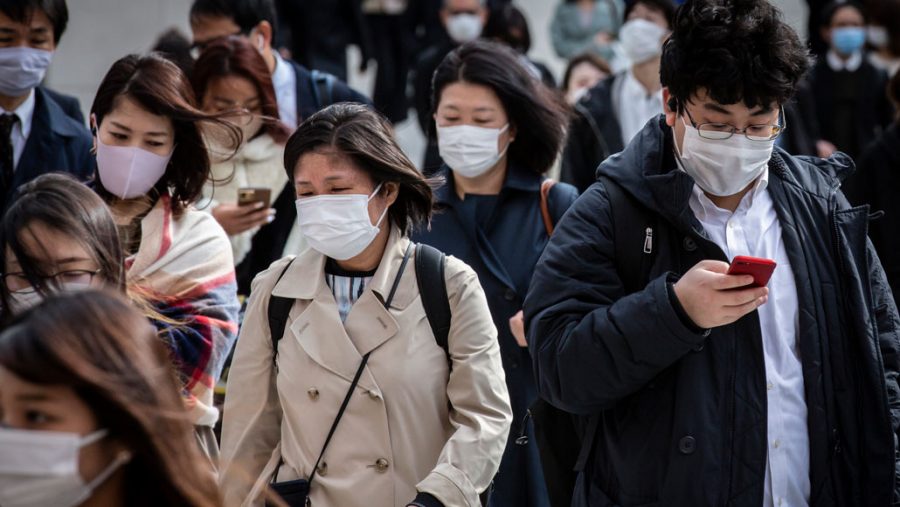New Study Suggests a Coronavirus Pandemic Occured 25,000 Years Ago
April 22, 2021
The COVID-19 pandemic took the world by storm, affecting almost every country and region on the planet. East Asian countries have done an excellent job controlling the spread of COVID-19 compared to European, North American, and South American countries who still are battling the pandemic. The numbers speak for themselves; although China started off with many cases, the numbers dropped to the twenties and tens by April, while the U.S still has about 70,000 cases each day.
East Asia’s quick containment of the virus surely deserves a round of applause, but it also raises another question: is there something genetically causing East Asians to better respond to COVID-19?
Recently, there was a study led by David Enard, an evolutionary geneticist, who presented his findings at a virtual meeting on April 8th, 2021. The findings contributed to the possibility that East Asians are more biologically adapted to coronaviruses and other similar viruses.
Analysis of DNA from more than 2,000 East Asians shows that genetic changes in response to the COVID-19 pandemic accumulated over the last 20,000 years. This discovery not only adds to Enard’s theory, but also opens a new possibility for exploring how genes linked to ancient viruses can contribute to modern viral outbreaks.
During the study, Enard’s group also utilized a DNA database of 2,504 people from 26 ethnic populations on 5 continents, such as Chinese Dai, African Yoruba people, and Vietnamese Kinh. The group studied 420 proteins known to interact with coronaviruses. The proteins’ interactions with these viruses range from boosting immune responses in the body to making it easier for a virus to override a cell. It was found that a significantly increased production of all 420 proteins appeared only in East Asians. The presence of all 420 proteins in East Asians suggests that there have been coronavirus-like epidemics in the past; why else would all 420 of those proteins be in East Asians if they’ve never been exposed to a coronavirus? The most reasonable explanation for this is that East Asians must have dealt with a coronavirus-like pandemic in the past that allowed East Asians today to possess more adaptations to these viruses.
An analysis of the genes that control the production of these proteins found that specific variants became more common around 25,000 years ago before leveling off in frequency by around 5,000 years ago. This pattern is consistent with the behavior of a genetic response to an initially aggressive virus that became more inactive over time, meaning that East Asians either adapted to the virus or the virus lost its ability to cause disease.
If this proves true, imagine what other unique adaptations different groups of people have inherited from catastrophes that took place several millennia ago!
Sources:
https://www.sciencenews.org/article/ancient-coronavirus-epidemic-east-asia-dna-covid


